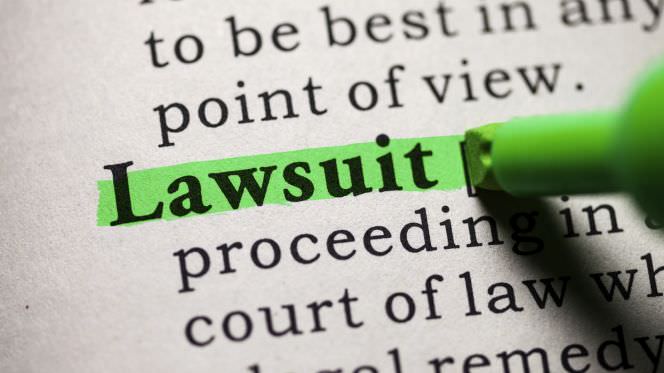When Samya Moftah walked into the Macy’s flagship New York store looking for gifts for her family last summer, she did not expect to be locked in a basement cell and charged with multiple crimes. Nor did the department store, already blighted by allegations of racism, expect to have another lawsuit on its hands.
Moftah, 53, was carrying two bags – one from JC Penney, and the second from a previous Macy’s shopping trip. Her plan was to exchange clothes from a couple of weeks prior for different sizes. After finding clothes for her daughter, she went to a register to buy and exchange the other items.
On the way out, a Macy’s Herald Square manager pulled Moftah aside by the arm, and told her that she needed to accompany her to an office, and that she had shoplifted, according to an affidavit provided by Moftah’s attorneys from the Usar Law Group. She thought she would show the manager her receipts and be on her way, and followed her into an elevator with her purchases. Two plainclothes security officers joined them on another floor. In the basement of Macy’s they led her to a row of “what looked like jail cells”. Moftah’s purse and phone were taken, and she was patted down under her shirt, legs, private areas as she repeatedly asked what was happening.
According to the affidavit, one of the employees said, “see what’s under the scarf” in referral to her hijab. She repeatedly mentioned that there was a huge mistake, and they should check her receipts. Moftah was locked in one of the cells. Her things were reviewed in front of her, and she “continued to plead with her (the manager), telling her “these were mine, and I had purchased them on my Macy’s card,” and she could easily verify this.
The manager approached her with documents, and told her to sign them repeatedly and pay $100 in order to go home. Moftah hadn’t eaten all day – it was Ramadan. When she began to cry, she was threatened with handcuffs and taunted for stealing during Ramadan and being Muslim, according to her affidavit. The Macy’s manager returned and told her the new price to go home would be $500. When she refused to do so, her credit card was removed from her wallet and charged for the full amount.
The police arrived and as she asked for help, they arrested her. Moftah was released at midnight, and charged with petit larceny and criminal possession of stolen property in the fifth degree. After several court appearances, the court dismissed the criminal charges against Moftah on 16 March 2016.
Humiliated, she found out about a lawsuit filed by another woman with an almost identical story and joined in a class action against Macy’s. Cinthia Carolina Reyes Orellana was similarly detained on 18 July 2014. Criminal charges against Orellana were also dropped months after she was accused of shoplifting $59 worth of clothes after she moved from one floor to another, which is allegedly not allowed in Macy’s stores.
Orellana was similarly not allowed to return home and was given a receipt with a charge of $100 and told she needed to pay a full $289 to Macy’s. She was also turned over to the NYPD after several hours locked in the basement of Macy’s in a cell.
In letters and receipts shown to the Guardian, Macy’s continued to send Orellana settlement claims for $199.80 for the civil claim through law firm Palmer, Reifler, and Associates in September 2014.
A Manhattan court judge ruled in favor of a class action lawsuit against Macy’s on Monday, in a case that looks into New York’s general business and obligations laws. The business law statute states: “A retail establishment for the purpose of investigation or questioning … as to the ownership of any merchandise … shall be in defense to such action that the person is detained in a reasonable manner.” The second statute gives retailers further power: “An adult shall be civilly liable to the operator of the establishment.” Penalties cannot exceed $500, and the retailer can charge five times the amount of the stolen merchandise.
The laws are meant to shield retailers. The opinion from Judge Manuel Mendez states: “Macy’s has combined the power it was given under the statutes by using this power as a double-edged sword instead of a shield.” He reasoned further that there is no language in the statures that allows Macy’s to detain an individual once an internal investigation is complete. The actions the class action alleged were seen as a violation of due process.
Faruk Usar of Usar Law Group, who represents Reyes and Moftah, said: “We’re just starting. There will be discovery to see how many people have gone through this experience. We are seeking all the money Macy’s collected to be returned.”
The court enjoined Macy’s from “demanding, requesting, collecting, receiving, or accepting any payments” that connect with the statutes from suspected shoplifters while detained in Macy’s custody.
Jim Sluzewski, senior vice-president of corporate communications and external affairs at Macy’s, said that the practice of civil recovery ended in fall 2015. “The preliminary injunction relates to in-store civil recovery, a practice that Macy’s had previously discontinued nationwide. Given that this is a matter in active litigation, we do not have further comment to make,” he replied in a statement. Macy’s attorneys from Palmer, Reifler and Associates PA did not reply for comment.
For Macy’s, this is the latest in a series of problematic arrests in its New York store. In 2014 the retailer paid New York attorney general Eric Schneiderman $650,000 to settle more than a dozen complaints of profiling and false detentions of minority customers at its Herald Square store.
Usar said: “We are claiming is that this is all by design. To accuse someone, hold them, charge them money, and then transfer them to the criminal justice system. Orellana and Moftah went to the court to prove their innocence. It’s like the police pulling you over, giving you a ticket and demanding money on the spot. If not worse.”
Source: www.theguardian.com





Be the first to comment on "Macy’s Banned From Detaining and Fining Alleged Shoplifters, Judge Rules"